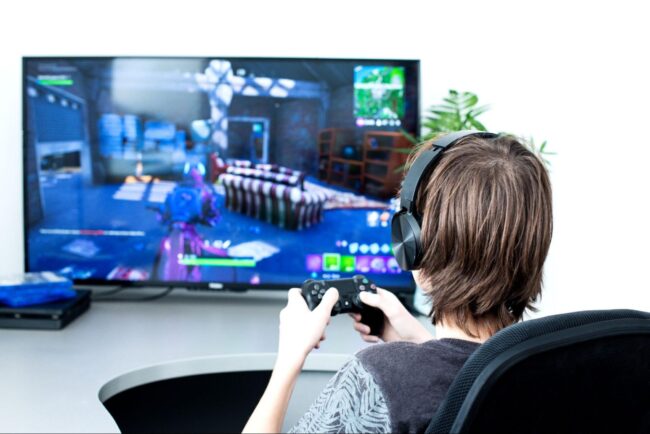Our team at LearningWorks for Kids has a longstanding interest in the impact of screentime on children. We see both positive and problematic use in screentime. We have conducted published research in our office in the past and are undertaking a new comprehensive study of screentime among a neurodivergent population. We also support other studies that explore this critical topic. We’d like to encourage our readers to participate in the Aura study.
Parents in the twenty-first century are increasingly worried about their children’s use of technology. With cell phones becoming nearly universal—95% of teens now have access to one, according to the Pew Research Center—parents find it more challenging to manage what their children encounter in the real and online world. Over the past decade, concerns about setting limits on screen time have risen significantly among parents. A 2015 study of Australian parents found excessive screen time to be the number one child health problem, more than obesity, drug use, and poor nutrition. A more recent study conducted by the American Family Survey in 2018 indicated that parents believe that the overuse of technology is the most important issue facing teenagers. The study of 498 parents indicated that overuse of technology was their single most important concern. In the study, 53% of parents described it as one of the most important issues facing teens, followed by 45% for bullying, 36% for mental health issues, 35% for family breakdown/divorce, and 34% for the pressure to use drugs or alcohol.
At Learningworks for Kids, we have been a voice for harnessing screen time to improve real-world skills. I remain an advocate of leveraging screen time activities to promote the development of executive functioning and social-emotional learning skills. However, I have become increasingly concerned about what kids encounter online and how much control they have over the amount of time and energy they spend on their phones and other technologies. One crystal clear strategy to address these concerns is to get parents more actively involved in their children’s use of technology and screens. Our team at LearningWorks for Kids encourages parents to become active participants with their children in their technology use and to engage in discussions and introspection about how screens can positively and negatively impact our lives.
While parents are expressing these serious concerns about children’s overuse of technology, they frequently appear to be doing very little to address it. Parental efforts at engaging children about their use of technology are primarily restrictive. Most parents prefer to set screen time limits from afar rather than being directly involved with their children’s technology use. Parents generally don’t participate in children’s media use: they don’t play games with them and rarely use social media together or engage in joint media engagement. Forward-thinking experts recognize that screens are part of 21st-century lives and that knowledge, communication, and engagement are more powerful interventions than efforts to eliminate technology.
I want to support the Aura research. If you are interested, visit BCFS001483-Aura-Kollins-141 [Landing Page] to sign up or learn more. Parents’ participation will provide them with a clearer understanding of their child’s screen time habits, including what they are engaging in and how much time they spend. One of the study’s goals is to help us better understand the long-term effects of screen time on children’s well-being. You can learn more about the study here https://get.aura.com/techwise.
References
Karpowitz, C. F., & Cope, J. C. (n.d.). The American Family Survey: 2018 Summary Report: Identities, Opportunities and Challenges. Deseret News. https://media.deseret.com/media/misc/pdf/afs/2018-AFS-Final-Report.pdf
Kulman, R., Mabe, M., Enah, U., & Kaplan Goodrich, L. (2013, March). Understanding Video Game Play and Parent Perceptions in Children with ADHD. Eastern Psychological Association. New York City; New York. Retrieved January 24, 2025, from https://www.slideshare.net/slideshow/epa-understanding-video-game-play-and-parent-perceptions/17107960?from_search=15#1.
RCH National Child Health Poll. Australian Child Health Poll. (2015, December 2). https://rchpoll.org.au/polls/top-10-child-health-problems/
TECHWISE Family Digital Mental Health Study by Aura. Aura / TECHWISE. (n.d.). https://get.aura.com/techwise
Vogels, E. A. (2022, August 10). Teens, Social Media and Technology 2022. Pew Research Center. https://www.pewresearch.org/internet/2022/08/10/teens-social-media-and-technology-2022/






